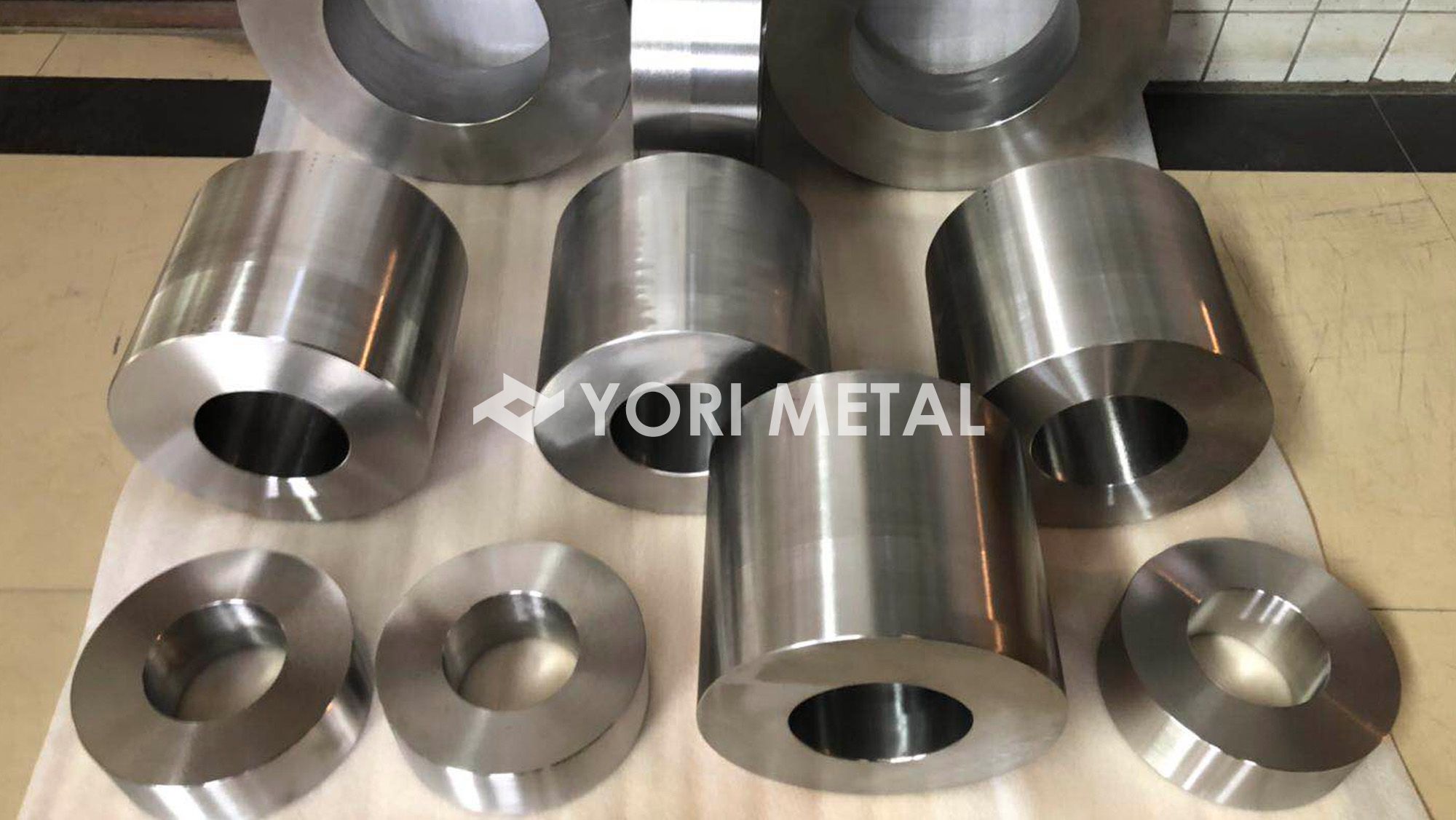

Yori Metal introduces the isothermal forging process of titanium forgings
In recent years, titanium alloys have rapidly developed into new key structural materials with strong vitality due to their high specific strength, excellent corrosion resistance, good biocompatibility and other advantages, and are widely used in aerospace, military industry, petroleum Chemical and health care and other fields. Due to the difficulty of cold deformation of titanium alloys, when using semi-finished products or finished products of titanium and titanium alloys, it is often necessary to deform titanium ingots into various billets and titanium forgings by hot working methods, among which forging processing is the most commonly used one. means. In addition, the heat treatment system of titanium alloy does not play a decisive role in its structure. Therefore, the titanium forging process can not only make the forgings close to the finished product in shape and size, but also play an important role in improving the structure and performance of titanium alloys.

Isothermal forging is an advanced processing technology that enables difficult-to-deform materials such as titanium alloys to form precision forgings with complex shapes at one time at a relatively constant deformation temperature at a very low deformation rate. The forgings formed by this process can be assembled and used with only a small amount of machining, and the material utilization rate is high, and due to the good process controllability and uniform deformation, the structure and properties of the forgings are more stable and uniform. economic benefits.
Baoji titanium forging manufacturer-Yongyi Titanium shares the isothermal forging process methods of titanium forgings as follows:
①Isothermal forging can realize precision forging, with less forging load and less die wear.
②It is easy to control the processing parameters, obtain a uniform and consistent microstructure, less coarse grains, and can obtain 20% to 30% spherical α phase, so its mechanical properties are comparable to or better than conventional forging products.
③The isothermal forging process can also reduce or eliminate the influence of die chilling and material strain hardening, significantly reduce the deformation resistance, and improve the forming performance of the billet. Therefore, the isothermal forging process has become an important development direction of the production process of titanium alloy forgings at home and abroad.
At present, the isothermal forging hardware in developed countries is quite mature, such as temperature controller, constant strain rate controller and computer feedback system. The research on isothermal forging in my country started relatively late. In the late 1970s, the Beijing Aviation Materials Institute first conducted isothermal forging experiments on the integral turbine disk of TC9 titanium alloy. After decades of development, isothermal forging has gradually been applied in my country's aerospace industry.